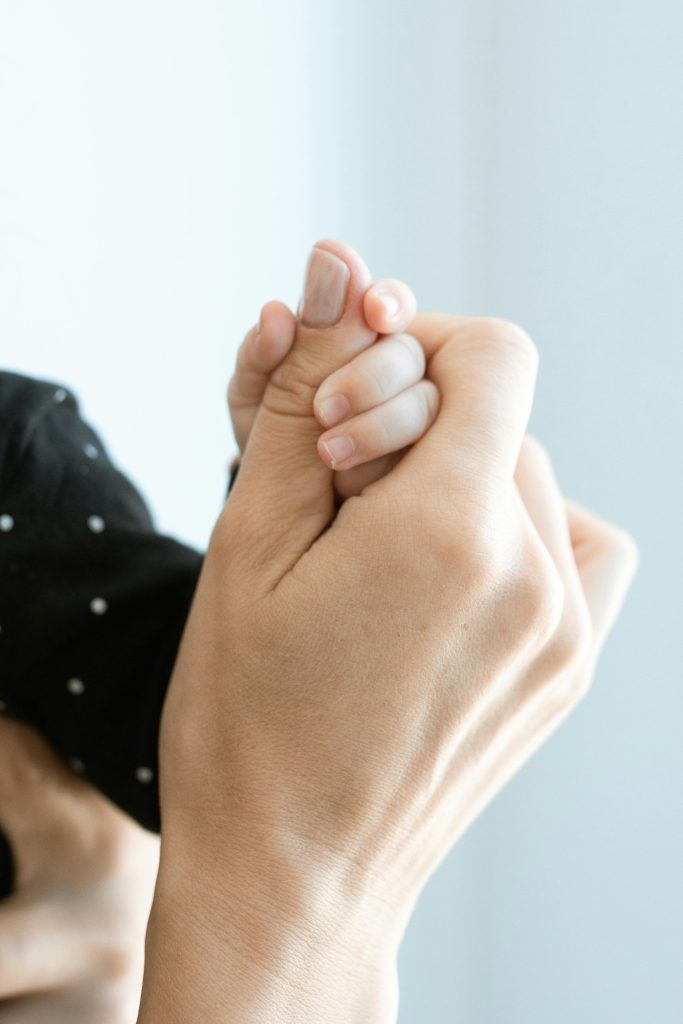At our Edmonton acupuncture clinic, we understand how challenging the postpartum period can be, and we’re always here to offer compassionate support. Postpartum depression isn’t just feeling down—it’s a serious condition that can impact your health, relationships, and your connection with your baby. We believe that every mom deserves to feel heard and cared for during this time, which is why we provide individualized treatment plans that address both the physical and emotional aspects of postpartum recovery.
If you or someone you know is experiencing postpartum depression, know that you don’t have to go through it alone. While acupuncture can be an effective support tool, it is important to seek help, which may include counseling or medical advice. You can learn more about what Postpartum depression is and when/how to get help here. We are not suggesting acupuncture is a “cure” for postpartum depression, but acupuncture can be a gentle yet powerful way to help ease anxiety, improve sleep, stabilize mood, and relieve physical discomfort, all while complementing other treatments. We’re going to talk about all of that today!
If you’re ready to try acupuncture, book a free consultation at our Edmonton acupuncture clinic today. Reach out to us here and read our reviews to see how we’ve helped other new moms in their fourth trimester.

What is Postpartum Depression?
Postpartum depression is more than just feeling sad after having a baby. In fact, it’s a serious mental health problem that can really affect a new mom’s health, family life, and relationship with her new baby. Unlike the “baby blues,” which usually go away in a few weeks and affect 80% of new moms, Postpartum depression can last for months or even years if not treated.
Common signs of Postpartum depression include:
- Feeling sad or empty all the time
- Mood swings
- Trouble bonding with the baby
- Withdrawal from family and friends
- Changes in appetite or sleep (more than what’s normal after a new baby)
- Feeling very tired all the time
- Experiencing anger or irritability
- Feeling worthless or guilty
- Having trouble thinking or making decisions
- Thoughts of hurting oneself or the baby
Postpartum depression can make it hard for new moms to care for themselves and their babies. It can also cause problems in relationships and affect the whole family. It’s important to spot these signs early and get help. We recommend speaking with a healthcare provider, counselor, or reaching out to a support line for mental health advice. Early intervention will provide the best outcomes for both mother and child. If you aren’t sure if you have postpartum depression, there is no harm in reaching out to your health professionals. Postpartum depression affects 1 in 7 women, so it’s incredibly common, and you deserve support.
What Causes Postpartum Depression?
The exact cause of postpartum depression isn’t fully understood, but several factors are believed to contribute to its development. Firstly, hormonal changes after childbirth play a significant role, as the sudden drop in estrogen and progesterone levels can affect mood and emotional stability. Additionally, a history of depression or a family background of mental health issues can increase the likelihood of developing postpartum depression.
Other contributing factors include a lack of support from family or friends, stressful events during or after pregnancy, and complications during pregnancy or childbirth. Struggles with breastfeeding, sleep deprivation, and financial concerns can also add to the emotional strain, making new mothers more vulnerable to postpartum depression. All of these factors can create a more challenging environment for a new mom, increasing the risk of developing this condition.
Remember, postpartum depression is a complex condition that requires a multi-faceted approach, including mental health support. If you or someone you know is in crisis, don’t hesitate to contact local resources such as crisis hotlines or mental health professionals. In Alberta, we have an anonymous mental health line you can call at 1-877-303-2642 (Toll free).

How Acupuncture for Postpartum Depression Can Help
Acupuncture for Postpartum Depression
Lastly, at our Edmonton acupuncture clinic, we know that every woman’s experience with Postpartum Depression is different. That’s why we create a personalized plan for each person. We use acupuncture along with other helpful treatments to address the physical, emotional, and mental aspects of postpartum recovery. Remember, if you or someone you know might have Postpartum Depression, it’s important to reach out for help. Learn about the signs and symptoms, and don’t be afraid to talk to your doctor. Postpartum Depression is a treatable condition, and with the right support, new moms can reclaim their joy and well-being.
Ready to explore how acupuncture for postpartum depression can support you in your postpartum journey? Book a free consultation with our Edmonton acupuncture clinic today. Let’s work together to help you feel like yourself again and enjoy this precious time with your new baby.